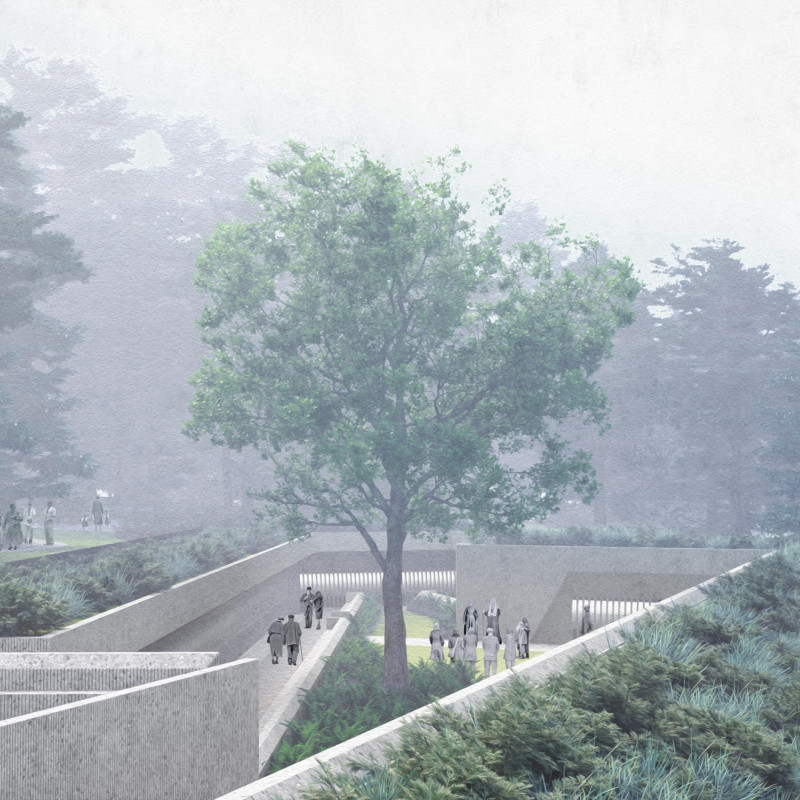5 key facts about this project
The Riga Forest Cemetery Columbarium is a thoughtfully designed architectural project located in Riga, Latvia, aimed at creating a serene space for remembrance and reflection within a natural forested landscape. This columbarium serves as a repository for cremated remains, fostering an environment that promotes contemplation and emotional connection for visitors. The design integrates seamlessly with its wooded surroundings, emphasizing ecological respect and cultural sensitivity.
The project’s layout features a series of terraced structures that follow the contours of the landscape. This careful arrangement minimizes disruption to the existing environment while maximizing the use of natural light and views. Visitors are guided through the site by gently sloping pathways that encourage exploration and reflection, creating a journey that deepens the connection to both the site and the act of remembrance.
Unique Spatial Relationships and Material Choices
The architectural design focuses on creating unique spatial relationships within the columbarium. The interplay of open and enclosed spaces facilitates diverse experiences for users. Vertical slits in the structure allow natural light to filter in, enhancing the atmosphere while providing necessary privacy for contemplation. The arrangement also preserves existing trees, which not only serve as a natural canopy but also contribute to the ambiance of tranquility characteristic of this place.
Materials selected for the columbarium reflect a conscious effort to integrate the built environment with the natural surroundings. Reinforced concrete provides structural integrity and is utilized in a minimalist fashion, while local stone cladding adds a tactile quality that connects the building to the geographic context. The incorporation of native vegetation further emphasizes the project's commitment to sustainability and ecological harmony.
Integration of Nature and Functionality
The Riga Forest Cemetery Columbarium distinguishes itself through its integration of landscape and architecture, emphasizing the relationship between built environments and their natural contexts. By preserving and incorporating elements of the forest, the design creates a reflective sanctuary where visitors can engage with nature while honoring their loved ones. The thoughtful arrangement of pathways and terraces encourages reflection in varied settings, while ensuring accessibility for all visitors.
This project serves as a model for how architecture can address sensitive cultural practices within a framework of contemporary design. Its attention to materiality, spatial configuration, and ecological integration marks it as a significant addition to the architectural landscape of memorial spaces.
To gain a deeper understanding of the Riga Forest Cemetery Columbarium, including architectural plans, sections, and detailed design ideas, readers are encouraged to explore the project presentation further.























































